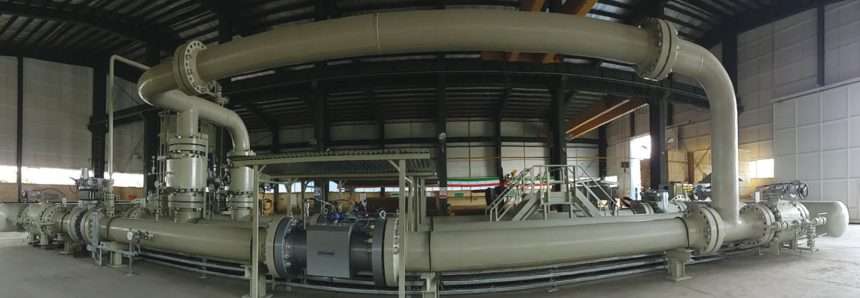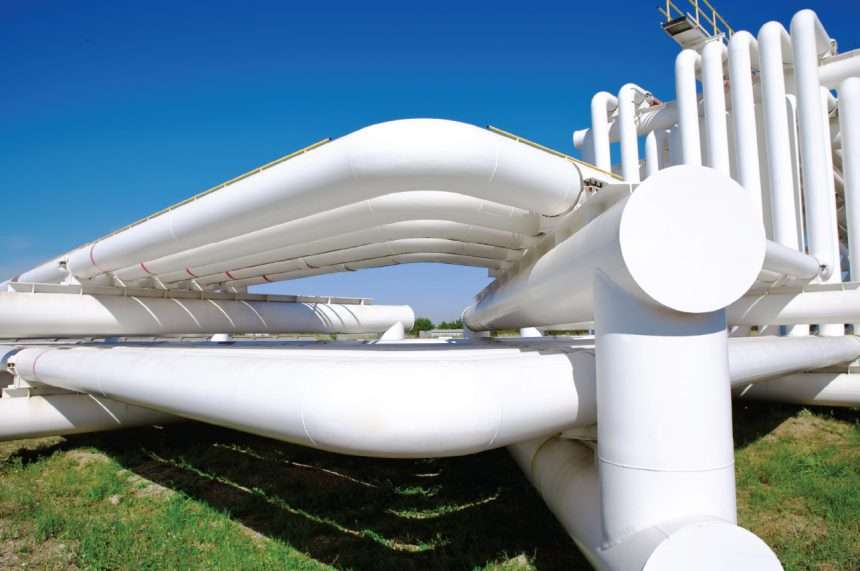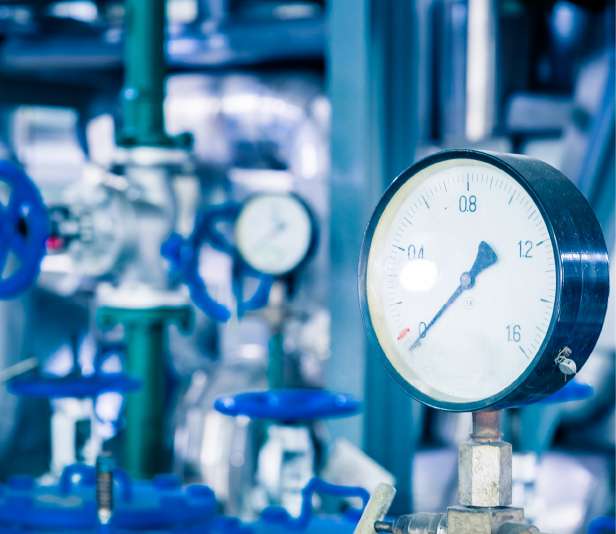By: Nosrat Al Molool Mahbod
Thank you so much for giving Trends this exclusive interview despite your busy schedule.
We are very grateful. Please introduce yourself and tell us more about your background and experience. Where did you start and how has your journey been as one of the few female business leaders in the energy sector?
I completed my studies in England, came back to Iran, and worked at our family company for 10 years. Our family company’s field was in promotion, marketing and representing internationally well-reputed European and American manufacturers of metering systems, loading systems, control systems and instrumentation mainly for the oil, gas, petrochemical and power industries. During all these years of working with my family, visiting many of our partners’ facilities in Europe and the USA, I decided to start my own company based on our capabilities in Iran. My aim was to enter into fabrication and manufacturing and, as a part of the country’s self-sufficiency goals, I gathered experience, knowledge and an understanding of the oil industry’s market and other necessary requirements of manufacturing.
What has your experience been like as a successful businesswoman working in this field?
What advice do you have for other aspiring female entrepreneurs? The industry worldwide has been male-dominated and I would say in Iran it is more challenging for women. I can claim that when I first started working, I was the first woman in Iran entering a business related to the oil industry. As a female entrepreneur in a male-dominated industry, earning respect has been a struggle and I had to learn to build my confidence. I faced a lot of obstacles and had to work really hard to overcome them. My advice to female entrepreneurs is to be yourself and have confidence in your abilities. You made it to where you are through hard work and perseverance so own your accomplishments.
Despite keeping Iran’s economy from growing, sanctions have made Iranian industries, most notably the energy sector, more self-sufficient to some degree. How true is that in your line of business, in terms of equipment and measurement instruments? How far are we from full self- sufficiency?
It is true that sanctions have impacted the Iranian economy, but it has had its benefits as well, which have made industries move towards self-sufficiency. In our case, I must say that we have achieved 100 percent self-sufficiency; we have the technical know-how, design, engineering, fabrication facilities and tests which are done in-house. We have been able to contribute to the oil industry by producing measurement systems and providing services which used to be imported and have saved millions of dollars for our clients.
Please tell us more about Asia Instruments. What products and services do you offer to the oil, gas and petrochemical industries? Do you have any exports?
Since the days when Asia Instruments had started with manufacturing measurement systems, we have grown and expanded our production line.
Presently we are producing controls systems, loading arms, process packages and filter separators. All of these packages used to be imported but are now made in Iran. All parts and equipment for the systems are manufactured in Iran, except the flow meter which we are currently working on by collaborating with a manufacturer.
We are bringing in the technology and will soon go into production of flow meters in-house too; the controls systems are also made in-house. All of our products are state of the art and are made based on international standards. We have also started exporting to a number of regional markets through dealers and agents.
Your manufacturing plant is considered a state of the art facility. How did you manage to build it despite obstacles, such as financing, sanctions, and local and international competition?
We built Asia Instruments’ facilities through my personal financing and have not used any banking facilities, nor any government funds. My passion for serving our country and creating jobs for our young talented engineers influenced me to personally finance and put all my efforts in the creativity and growth of Asia Instruments. The government does not really help the private sector or self-made entrepreneurs. Also, the banking system’s high interest rates are not helpful at all.
What’s next for Asia Instruments, in terms of growth, diversification, and expanding into other markets, in light of the current economic conditions?
Asia Instruments is expanding its business and facilities. We are investing in new manufacturing facilities and have already obtained a 100-acre land for our plans. The goal is to mainly enter into the field of new technologies and environmentally friendly products.
The Importance of Business Coaching for any Organization
Instrumentation Systems Demystified
The Critical Role of Metering and Measurement Systems in the Energy Sector
What is instrumentation? This might seem a bit ambiguous at first to our audience but we aim to familiarize them with the concept of instrumentation.
Let’s begin the discussion with the word “measuring.” We are all familiar with the concept of measuring in our daily lives in different ways without being conscious of it. Let’s guide your attention toward the daily tasks that you perform, from buying fruits to monthly necessities at a market or buying a cup of coffee from a coffee shop.
When we intend to buy a kilogram of apples we visit the grocery store, or the market to buy a liter of water or when we want a cup of coffee we go to Café Viuna and we pay a certain amount in exchange for each purchase. A clearer example would be the water and utility bills, which, on a bimonthly basis, charge us based on our usage or cellular internet packages which allocate a certain amount to be used.
The common theme among all of the aforementioned examples is the method of measurement and payment to the seller. The interesting point here is the unwritten agreement between the buyer and seller based on the measurement, which means the necessary condition for buying or selling is having standards and units of measurement.
The standard and unit of measuring one kilogram for the seller are the weight and scale. For the water bill, the value and flow through the flow meter the standard for measurement and for a bottle of water, the volume that fits inside the bottle is the unit and standard for payment.
The house gasometer is the most tangible example that can aid us to having a better understanding of an instrumentation system. The house gasometer possesses a function that determines the usage of a single housing unit. The usage is the volume that passes through the gasometer which is evaluated based on cubic meters.
Iran & Italy: Form Industrial Cooperation to Cultural Exchanges
This method of measurement is accepted by the gas company and the consumer. The producers of the gasometers are required to follow certain standards in accordance with the gas company.
Based on the above topics we can deduce a few points that can help us in continuation of this topic.
1) For each measurement, a certain unit and standard must exist such as kilograms, liters, etc.
2) The standards and units related to measurement must be acceptable to both buyers and sellers and they should be based on the standard international references.
3) Any kind of payment between buyers and seller will only be done in accordance to precise and accurate measurements.
These three important conclusions are the basis and foundation of instrumentation in any industry. The same principals apply to the oil and gas industries but with much more precision and lower margin of error. Let us continue with the field of oil, gas and petrochemicals as our primary focus.
Millions of years have had to pass for a single drop of oil to be formed. The effects of this black gold are undeniable in the global markets and economic formulations. For many countries, this is the bloodline that moves the economic cycle and these countries need this black liquid to manufacture their goods and offer them in the market. In today’s market, oil is so valuable that countries are willing to pay a huge price for its control and possession; its treatment has been a great challenge to the world’s governments. In addition to oil, which is mainly sold in crude form, oil and gas products possess a higher value and will have a higher value-added, which is due to the raw materials being processed and turned into refined materials which posses a higher value compared to that of crude oil. High value derivatives include natural-gas condensate, polypropylene, ole fin, aromatic, etc. The value of these products in comparison to that of crude oil is in a manner that the income generated can be many folds more than that of petroleum. So, based on the value that this material has and the income that can be made through the sale of its derivatives, it goes without saying that we must plan for each drop in order to prevent any waste. By this logic, its measurement with minimal error is the most important issue between the buyer and seller. Here, the value of instrumentation is brought to light. Instrumentation assists us in having precise measurements with a low margin of error to prevent the waste of even a single drop of this product.
“Oil export of 2 million barrels per day,” “3 million barrels per day” or “300 thousand barrels per day” are sentences that we are all familiar with because news outlets and social media repeatedly report the amount of oil exports of countries using these sentences. The question is, what equipment is used to make these measurements? This responsibility belongs to instrumentation systems.
An instrumentation system is present at the input or output of a refinery. If the instrumentation system is located at the input of the refinery, it is used to measure the amount of input and unrefined liquid, and if it is placed at the output it is used to measure the materials produced, refined or exported. An instrumentation system is made up of different components which, at the end, lead to the precise measurement of the liquid.
The heart of this system is the flow meter which, after measurement of the flow passing through the pipes and sending a signal to a programmed controller, will calculate the precise flow volume through the pipe and provide the data to the user. However, this measurement must be accurate to the point of not wasting a single drop. Often a refinery and petrochemical complex exchange materials. This measurement is done in a way that they both agree upon which is due to the standards and units that must be followed in manufacturing these systems which in this case are based on the international manuals and standards.
All the calculations done by the controller are based on the American Gas Association, or AGA, and/or the American Petroleum Institute, or API, international standards. These standards are the criteria accepted by the buyers and sellers. The calculations done by the controller are considered the standard for financial exchange, which means in exchange for the volume passing through, usually done based on barrels, money is exchanged. In the field of oil, gas and petrochemicals in Iran, this is referred to as custody transfer. Asia Instruments is the first producer of instrumentation systems in Iran and the Middle East which plays a major role in measurement of oil, gas and petrochemicals. Over the past 30 years, this company, with the great effort of its managers and exceptional employees by obtaining knowledge and technologies, has been able to localize the production of these instruments and rid the country of any need for foreign companies. One of the most important managerial goals of this company is holding itself accountable to international standards and being accepted by clients in production of these systems which can be seen through its resume and numerous projects which have always been approved by inspectors and clients. By creating an appropriate factory and workshop space in the Payam Special Zone, located in the province of Alborz, Asia Instruments has been able to be a pioneer in this field, and prevented the exit of large quantities of currency by the presence of foreign companies.
As a front runner in the high-tech industries, it has surpassed its American and European competitors and established itself as the first and only knowledge based company in the field of manufacturing instrumentation systems in Iran. This company has the ability to manufacture instrumentation systems for the measurement of liquid gas products, which are mainly extracted from the shared sources of the Southern and Northern Pars gas pockets, and also the measurement of liquid petroleum products, which are extracted and refined in many areas across Iran, making it the largest supplier of measurement instruments in the field of oil, gas and petrochemicals.
Today, Asia Instruments, with reliance on human resources, knowledge and experience and the use of capacities of internal knowledge-based companies, has been able to become a major competitor among international companies, a majority of which belong to Western European and American countries, and participate in international projects including gas pipelines to Turkey, Iraq and Russia.







